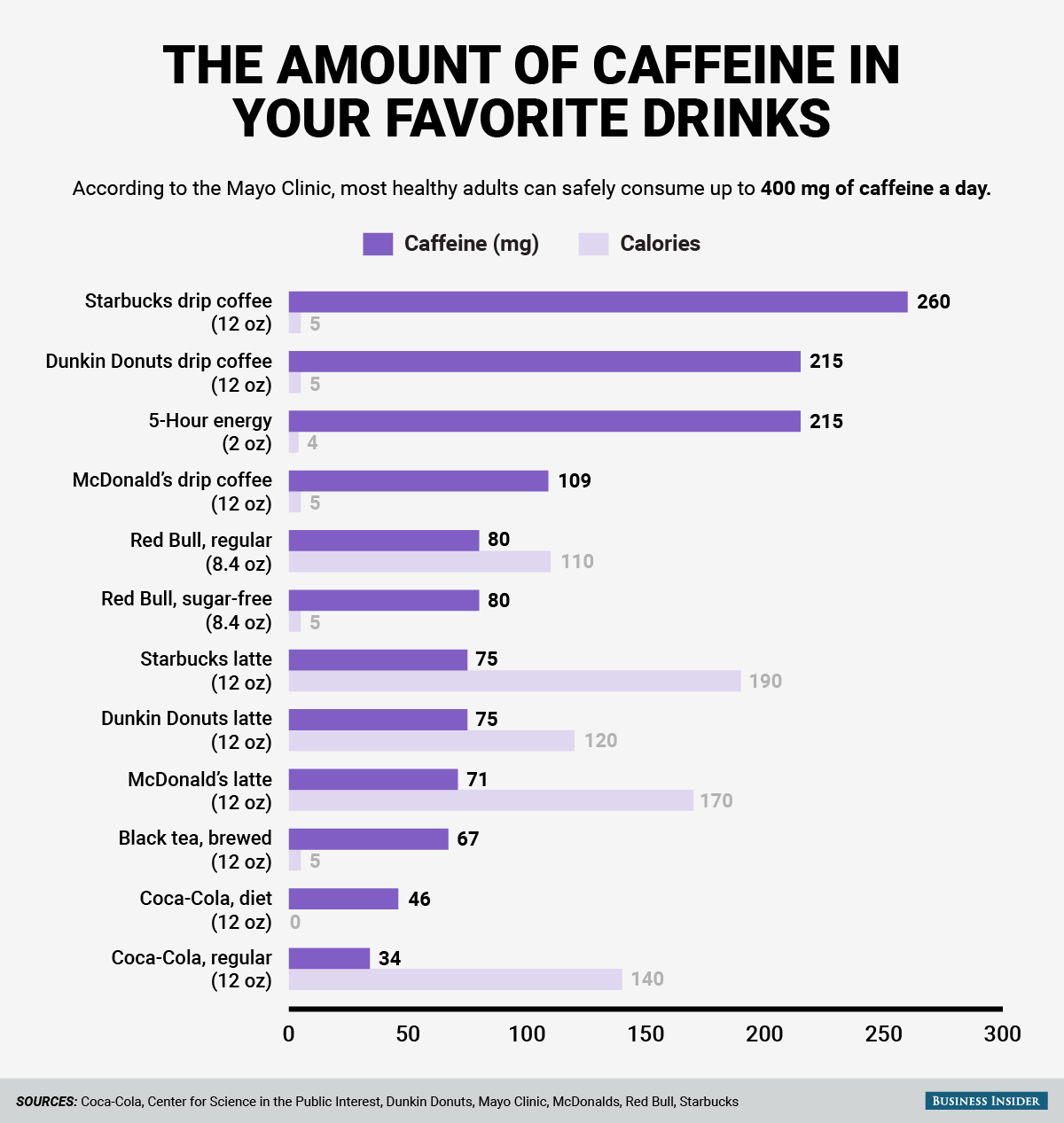How to Get the Most Caffeine for Your Buck

By:
No matter how you take your coffee — hot or iced, cream or sweetener — the thing we cherish most about the drink is the jolt of energy provided by caffeine. But this chart created by Business Insider proves that not all caffeinated drinks are created equal.
This chart breaks down the caffeine content of popular coffee and energy drink brands.
 Business Insider - businessinsider.com
Business Insider - businessinsider.com
Let's start by looking at the most common form of coffee consumption — drip coffee. While Starbucks is often criticized for being expensive, it also offers the most caffeinated drip coffee option at 260 mg per 12 oz. drink. The same size drink at Dunkin Donuts contains 215 mg of caffeine, and McDonald's drip coffee comes in last place, at 109 mg.
There are several theories about why caffeine content differs between brands.
People sometimes assume that dark roast ("bold") coffee has a greater concentration of caffeine than light roast coffee, but that might be an oversimplification. Light roast coffee beans actually contains more caffeine if you measure by scoop; but because dark roast beans are less dense, if you measure scoops of coffee by weight, you'd end up using more dark roast grounds, making the filtered drink stronger than light roasts.
That's all to say that the difference between Starbucks and McDonald's drip coffee caffeine content might have to do with the amount of coffee grounds they use. One former Starbucks employee reported that the chain, at least at their location, used double the coffee grounds recommended for brewing.
The pros and cons of caffeine.
The benefits of caffeine extend beyond the temporary energy boost it gives you. Some studies also suggest that it enhances memory and may help prevent you from developing certain diseases such as Type 2 diabetes and liver cancer, Business Insider reports.
But before you reach for that third or fourth cup, remember that adults should max out at 400 mg of caffeine per day. Side effects of being over-caffeinated include insomnia, nervousness, irritability, upset stomach, and muscle tremors.
"If you're like most adults, caffeine is a part of your daily routine," Mayo Clinic writes. "And most often it doesn't pose a health problem. But be mindful of those situations in which you need to curtail your caffeine habit."
